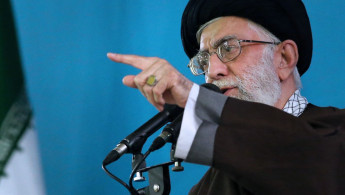Iran's Khamenei orders 'severe punishment' for poisoners
Iran's Supreme leader Ayatollah Ali Khamenei on Monday said those behind the poisoning of schoolgirls in recent months should face "severe punishment", according to his website.
In total, several hundred cases of gas poisoning have been reported in more than 52 schools across Iran since the end of November, according to an official count.
Female pupils have reported suffering symptoms such as shortness of breath, nausea and vertigo after detecting "unpleasant" or "unknown" odours, sparking fear among parents and calls for authorities to act.
"If the poisonings are proven, it would be an unforgivable crime... (and) the perpetrators must be handed severe punishments, with no amnesty for them," Khamenei said in his first public comments on the mystery poisonings.
Judiciary chief Gholamhossein Mohseni Ejei said on Monday that individuals arrested for poisoning the schoolgirls would be put on trial and charged with "corruption on earth" -- an accusation that would lead to the death penalty.
Iranian officials have not announced any arrests so far.
Late Sunday, Iranian President Ebrahim Raisi denounced the poisoning cases, which have led some girls to be hospitalised, as "a new conspiracy by the enemies" of Iran.
This action, he said, was meant to "instill fear in the hearts of students, children and their parents".
Meanwhile, authorities on Monday arrested Iranian journalist Ali Pourtabatabaei who had been covering the poisoning attacks for the Qomnews website, Etemad reformist newspaper reported.
The first case of poisoning reportedly took place at the end of November in the shrine city of Qom south of Tehran.
Etemad also reported that dozens of schoolgirls in the eastern city of Quchan were taken to the hospital after smelling "unpleasant odours" on Monday, while more than 700 similar cases were reported in the southwestern province of Khuzestan on Sunday.
Last week, deputy health minister Younes Panahi said that the suspected attacks were aimed at shutting down education for girls.





 Follow the Middle East's top stories in English at The New Arab on Google News
Follow the Middle East's top stories in English at The New Arab on Google News


